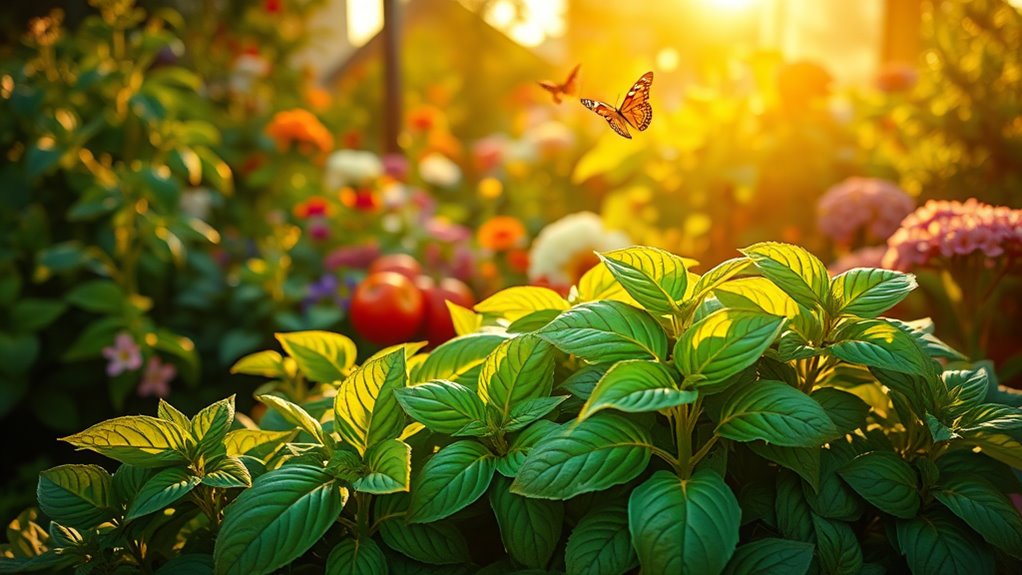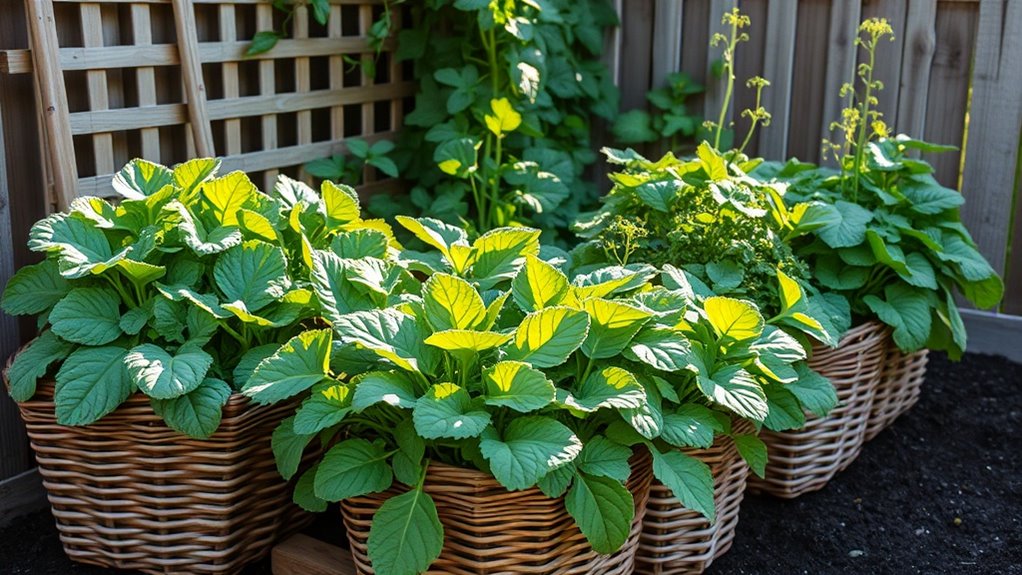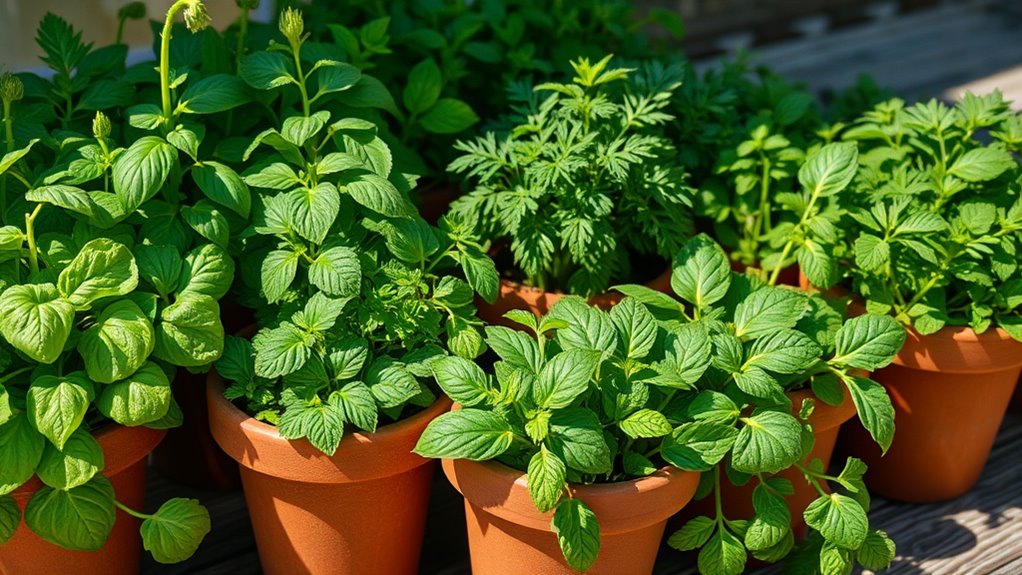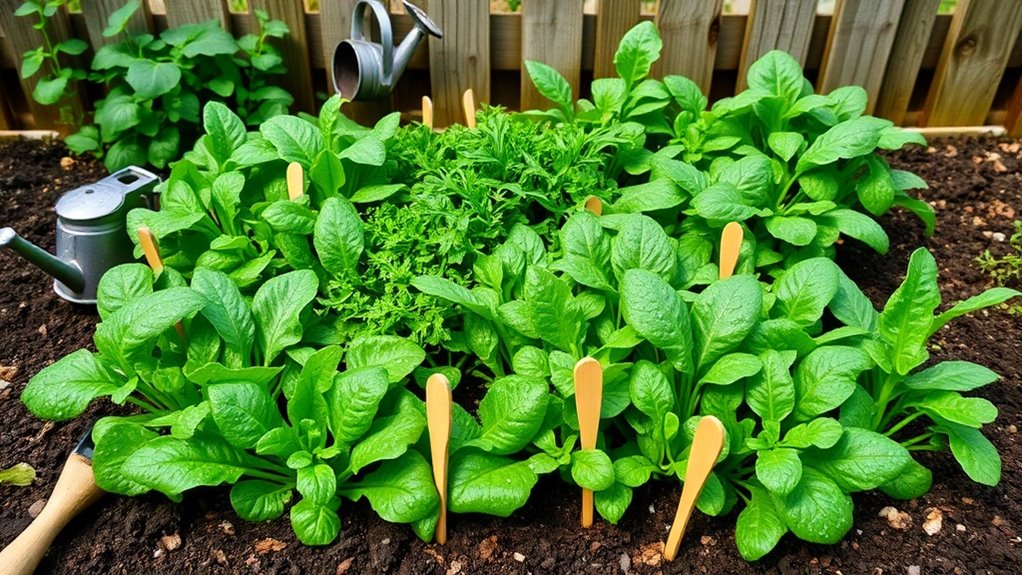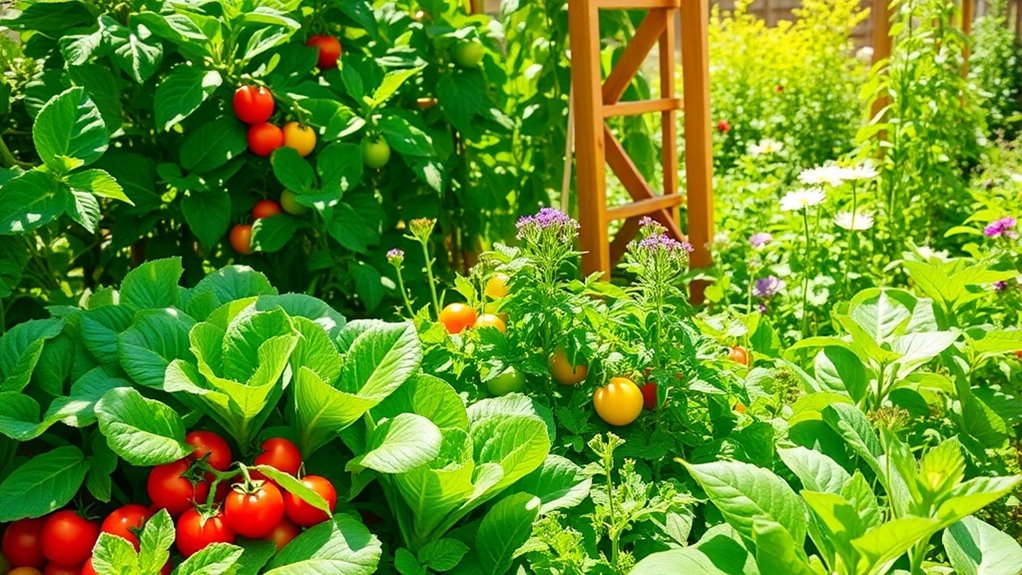You’ll Be Shocked What This One Herb Does for the Garden
You might not realize that basil is more than just a cooking staple; it’s a powerhouse for your garden. This herb not only enhances flavors in your dishes but also serves multiple roles that can transform your gardening experience. From repelling pests to improving soil quality, basil’s benefits are substantial. Curious about how this versatile plant can help your garden thrive? Let’s explore the remarkable ways basil can change your gardening approach.
The Power of Companion Planting
When you consider the diverse relationships in your garden, you’ll find that companion planting offers a powerful strategy for enhancing growth and pest management. By pairing plants with multi-use herbs like basil or dill, you can optimize nutrient uptake and improve flavor profiles. These herbs also attract beneficial insects, ultimately creating a healthier, more productive garden ecosystem that thrives on interconnectedness. Moreover, planting companion herbs like basil helps to deter pests that may harm your tomatoes and peppers, ensuring robust growth and higher yields.
Natural Pest Repellent Properties
While many gardeners seek chemical solutions for pest control, turning to herbs offers a natural alternative that’s both effective and environmentally friendly. Herbs like basil, mint, and rosemary deter pests naturally, making your garden healthier. Here’s a quick comparison of these herbs and their pest-repelling qualities:
| Herb | Pests Repelled | Benefits |
|---|---|---|
| Basil | Aphids, Flies | Enhances flavor of plants |
| Mint | Ants, Fleas | Aromatic and fragrant |
| Rosemary | Beetles, Moths | Medicinal properties |
Additionally, these herbs can be used as natural sprays for pests, creating a holistic approach to pest management in your garden.
Enhancing Soil Quality
Improving soil quality is essential for a thriving garden, as healthy soil provides the foundation for plant growth and resilience.
One effective method is introducing specific herbs that naturally enrich the soil. Their roots break compaction, while organic matter from decaying leaves boosts nutrient availability, enhancing microbial activity. Additionally, certain herbs have the ability to fix nitrogen in the soil, further promoting plant health.
Boosting Plant Growth
To successfully boost plant growth, you can harness the power of specific herbs known for their unique properties. For instance, using basil can enhance nutrient absorption and stimulate root development. Similarly, nettle extract, rich in nitrogen, promotes vigorous growth. Incorporating these herbs into your garden not only accelerates growth but also improves overall plant health, leading to a more productive and vibrant garden. Additionally, healing herbs such as chamomile can help prevent diseases, making it an excellent companion plant.
Attracting Beneficial Insects
Attracting beneficial insects to your garden is essential for maintaining a healthy ecosystem and promoting natural pest control.
Planting herbs like dill, fennel, and coriander can draw in ladybugs, lacewings, and parasitic wasps. These insects prey on harmful pests, reducing the need for chemical pesticides. Additionally, using DIY bug spray made from natural ingredients can further support these beneficial insects while controlling unwanted pests.
Keeping your garden diverse enriches insect populations, enhancing pollination and improving overall plant health.
Culinary Uses and Benefits
While the beauty of herbs can enhance your garden’s aesthetics, their culinary uses and benefits truly elevate your cooking.
Incorporating fresh herbs into your dishes not only heightens flavor but also provides numerous health benefits. Here are some highlights:
- Boosts antioxidants in meals
- Adds depth and complexity to recipes
- Supports digestion and overall wellness
Fresh herbs are a must for any culinary enthusiast! Additionally, many herbs have medicinal properties that contribute to improved health outcomes and enhance the overall dining experience.

